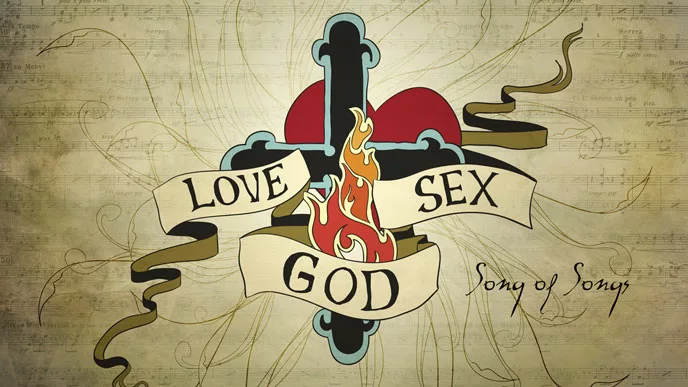Had I known that this was going to be such a dissenting issue I might have stayed away, I say might because I do not know that in the end I could have stayed silent on such an important issue as Gods grace and love. Our corps (which is still in it’s infancy as a church plant) is built on this understanding of Gods grace and love.
What really gets me is that with his book, Rob Bell makes a contribution to an ongoing conversation. He really isn’t saying anything that has already been said by the likes of Brennan Manning, Wayne Jacobsen, Marcus Borg, N.T. Wright, Brian Mclaren, Eugene Peterson, Jay Bakker and notably C.S. Lewis. But suddenly the evangelical beast has awakened and instead of entering into the conversation demands to know where you stand on the Rob Bell issue.
I agree with the image of God that Bell is portraying, I am not sure I agree on the specifics of Bell’s Hell. However, in the polemic debate that does not matter; You are either for Bell or against heresy. The conversation is thus silenced within the ranks of the “orthodox” evangelical church. If you want to stay in the conversation you must move out into the wild, outside of the box, outside of organised religion.
What if I want to discuss this? What if I want to be able to think outside the box even though I live inside it?





I am experinceing sort of the same thing in a conversation on John 14:6 right now. *sigh*
I’m, however, right here. If you want someone to talk about these matters with. Just sayin’. Oh, and I love you, bro, no matter where you stand theology wise.
There is rarely mature debate within evangelical circles because we have a habit of splitting over the slightest thing. Having read some more and watched the ‘conversation’ on the night before release I would say my position is closer to Rob Bell’s, or at least certainly the one I heard in the video as I can’t afford the book at the moment. In fact there is only one major difference and it doesn’t make me think of Bell as being heretical.
However, there is one thing that bothers me! We have a book release, just like any other book release but Harper Collins release a Press Release that seems to suggest a controversial outcome from the book, release a video that whilst I heard nothing too controversial was obviously meant to provoke a response, and generally run the media machine in order to get as big a sales opportunity as possible. Call me cynical if you want, but the publishers at least knew exactly what was going to happen with all this publicity and just like any other business have played the game very successfully.
As far as debate is concerned I’m open to chat about all sorts of things and would probably be seen as part of the orthodox evangelical camp. However, with one or two exceptions, I’m finding that trying to talk to lots of people in the emerging camp is proving fruitless because I am labelled as ‘intractable’ as soon as they realise I don’t agree with them on everything. It’s a shame because I am desperately seeking to discuss with someone who will value my views as much as I value theirs!
Graeme, I agree with you that Harper Collins have milked this cow pretty well. What bothers me about that is that there are real people getting hurt in the process.
As to discussion I think that unless each person comes to the table with an open mind there will be no actual conversation, only a lot of grandstanding and pontification.
Peter Rollins suggests that in all our conversations we basically have four different approaches.
1) I am right, you are wrong so i am going to force you to accept my position
2) I am right, you are wrong so I will shun you or push you out of the conversation
3) We are both right and so we don’t really have a conversation
4) I might be wrong and you may be right so we have a deep and meaningful conversation
I wish more people could be type 4 but more often it seems to be 1 and 2!
In his new book “Love Wins” Rob Bell seems to say that loving and compassionate people, regardless of their faith, will not be condemned to eternal hell just because they do not accept Jesus Christ as their Savior.
Concepts of an afterlife vary between religions and among divisions of each faith. Here are three quotes from “the greatest achievement in life,” my ebook on comparative mysticism:
(46) Few people have been so good that they have earned eternal paradise; fewer want to go to a place where they must receive punishments for their sins. Those who do believe in resurrection of their body hope that it will be not be in its final form. Few people really want to continue to be born again and live more human lives; fewer want to be reborn in a non-human form. If you are not quite certain you want to seek divine union, consider the alternatives.
(59) Mysticism is the great quest for the ultimate ground of existence, the absolute nature of being itself. True mystics transcend apparent manifestations of the theatrical production called “this life.” Theirs is not simply a search for meaning, but discovery of what is, i.e. the Real underlying the seeming realities. Their objective is not heaven, gardens, paradise, or other celestial places. It is not being where the divine lives, but to be what the divine essence is here and now.
(80) [referring to many non-mystics] Depending on their religious convictions, or personal beliefs, they may be born again to seek elusive perfection, go to a purgatory to work out their sins or, perhaps, pass on into oblivion. Lives are different; why not afterlives? Beliefs might become true.
Rob Bell asks us to reexamine the Christian Gospel. People of all faiths should look beyond the letter of their sacred scriptures to their spiritual message. As one of my mentors wrote “In God we all meet.”